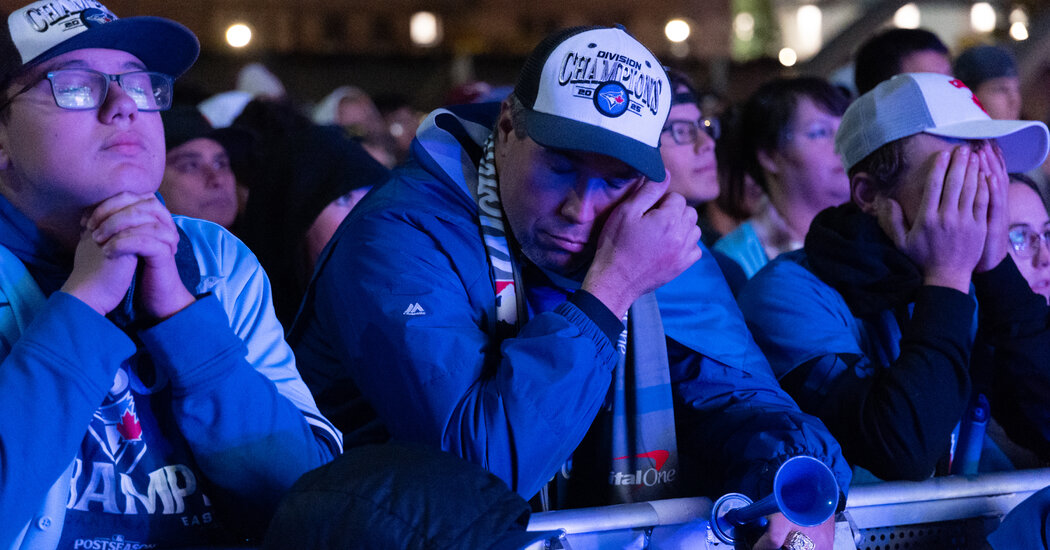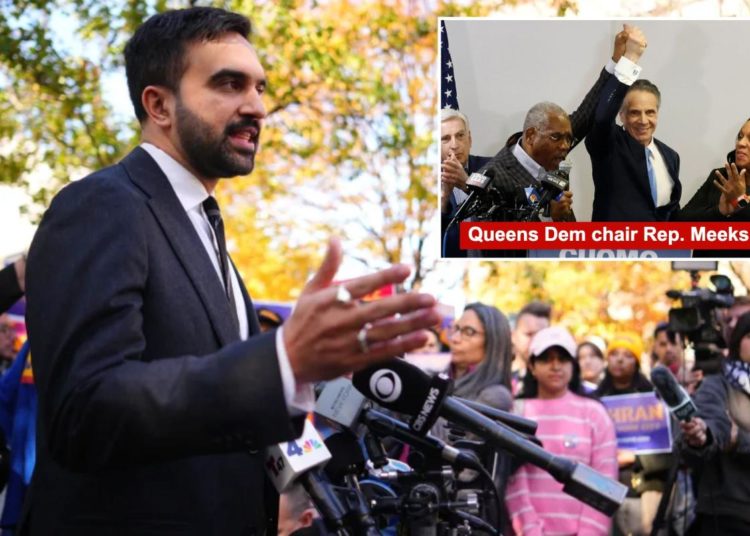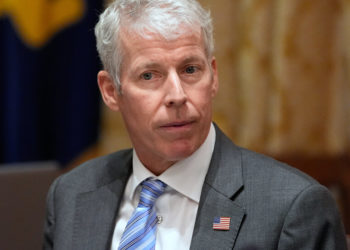This October, the World Series was played outside the United States for the first time in 32 years. Shortly after midnight, the Commissioner’s Trophy, having made a brief trip to Canada, was heading home with the Los Angeles Dodgers.
The Dodgers defeated the Toronto Blue 5-4 in 11 innings to win the World Series in a thrilling Game 7, breaking the heart of a whole country that had rallied around the team during its own season of discontent with the United States, its once close ally.
A World Series that most Americans predicted would be over in four games — starring Canada’s only Major League Baseball team against the blue chip Dodgers, with baseball’s biggest payroll at $520 million and best player in Shohei Ohtani — delivered everything but a championship for the Blue Jays.
Along the way, the underdogs became known as the “Glue Jays” for their camaraderie and power in uniting fans across the country as the team ran through the New York Yankees and Seattle Mariners.
On Saturday, the Rogers Center in Toronto, holding nearly 45,000 fans, was bedlam most of the night.
The Blue Jays chased starting pitcher Ohtani from the mound after he gave up a three-run home run to Bo Bichette. A spectacular diving catch in center field by Daulton Varsho followed by another at first by Vladimir Guerrero Jr., saved at least two runs. The dugouts and bullpens cleared for some pushing and shoving after the Toronto batter Andrés Giménez was hit by a pitch. Guerrero executed a risky double play to perfection. A home run by Miguel Rojas of the Dodgers in the ninth inning tied the game 4-4. Then, a solo home run by Will Smith of the Dodgers in the 11th inning stunned the crowd, and the Blue Jays could not match it.
On a clear, crisp November night in Canada’s largest city, Jays fans watching in jammed bars drifted despondently onto the downtown streets. The Rogers Centre crowd, who applauded the Blue Jays as they left the field, couldn’t bear to watch as the Dodgers piled onto it.
“As tough as this is right now, I think of the entire country and how they latched onto this group and hung on every pitch just like we did and there’s going to be so many good memories for generations of Blue Jays fans that waited a long time to get here,” the Blue Jays manager John Schneider said. “To the fans I say thank you, and to the fans I say sorry.”
Geddy Lee, the lead vocalist and bassist for the rock band Rush, has been a season-ticket holder since 1979. He said the makeup of the team — a mix of stars like Guerrero and George Springer, and more than a dozen players with recent minor league stints and some prospects — engaged Toronto baseball fans and roused so many Canadians.
Toronto finished last in the American League East in 2024, and early expectations for this year had been low.
“This is the most surprising team I can remember in all the years I’ve been following them,” Lee said in an interview with The New York Times before Game 7. “They got on a roll and you wondered, is this really happening? It snowballed and turned all those negative expectations into a love affair.”
The Blue Jays have one Canadian player — the charismatic, hard-slugging first-baseman Guerrero, who was born in Montreal while his father was playing for the Expos. He arrived at the stadium on Saturday wearing the jersey of Canada’s women’s hockey team captain, Marie-Philip Poulin, and he put it back on after the loss.
Most of the Blue Jays players are from the United States or Latin America, and yet as a group they emit a distinctly Canadian spirit. They’re likable. They’re loose but tight-knit. They play with joy. They take winning seriously, but not themselves.
“There doesn’t seem to be a lot of arrogance and Canadians identify in that regard. Proudly quiet and self effacing. Maybe that’s how we connect to them,” Lee said. “They’re quiet yet persistent and they seem to have no quit in them and Canadians like to see that in themselves.”
He called the Blue Jays “a unifier.”
The Jays’ third baseman Ernie Clement called it “a privilege” to serve in that role.
“I have had zero negative interactions with anyone in this entire country since I’ve been here, which is just mind-blowing to me,” said Clement, who is from Rochester, N.Y. “Everyone has just been so cool and nice and welcoming and so supportive. It is truly an honor to play for this country.”
Since the spring, the Blue Jays have been a Xanax for a nation pulled unwillingly into tense relations with the United States over tariffs and President Trump’s threats to Canada’s sovereignty. On the eve of Game 1, Trump said that he was terminating trade talks with Canada over an ad taken out by the Ontario government that Trump said misrepresented Ronald Reagan’s words on tariffs from a radio address he gave in 1987. Prime Minister Mark Carney of Canada apologized to Trump for the ad.
But unlike when the tariffs were announced, national anthems were respected and routinely cheered during the World Series. In one clumsy moment that may or may not have been political, in the middle of Game 6 on Friday, a man carrying a bunched up American flag jumped over the outfield wall but was quickly tackled by security guards and arrested by the police. For the most part, all Canadians wanted to talk about was the Blue Jays. Tensions stayed on the ball field.
For the first time in the history of Major League Baseball, the season began and ended abroad — in Tokyo and Toronto. Fittingly, an international audience tuned in — the opening game had a combined viewership of 32.6 million in Canada, Japan and the United States, the largest since the Chicago Cubs’ championship that ended their 108-year drought in 2016.
Lee said he had heard from many American friends “who are secretly rooting for the Blue Jays.”
“The numbers this World Series is doing not only in Canada, but everywhere, is unbelievable,” said Bichette, the Jays’ infielder. “I even had to kind of take a step back and be like, dang, this is pretty cool.”
The biggest moments: Addison Barger’s pinch-hit grand slam for the Blue Jays in Game 1, the first in World Series history. The Dodgers pitcher Yoshinobu Yamamoto’s complete Game 2. An 18-inning Game 3, the second longest in World Series history. Toronto’s shutdown of Ohtani on the mound and in the batter’s box in Game 4. The Blue Jays rookie pitcher Trey Yesavage’s seven-inning masterpiece — with 12 strikeouts, a World Series rookie record, in Game 5. A wild ninth inning in Game 6 that saw a stuck ball likely cost the Jays the game. And in Game 7, heartache.
Joe Carter, who hit the home run that won the Jays their last World Series in 1993 knows what the Blue Jays can mean to a country.
“If you close your eyes and swing hard and hit a home run, they will love you for the rest of your life, not just here in Toronto,” Carter said. “You can go from as far east as Nova Scotia and as far west as Vancouver and it was all about the Blue Jays. It was all about Canada.”
Shawna Richer is an editor working on coverage of sports in America.
The post Canadians Mourn a Loss by Underdogs Who Brought a Nation Together appeared first on New York Times.




